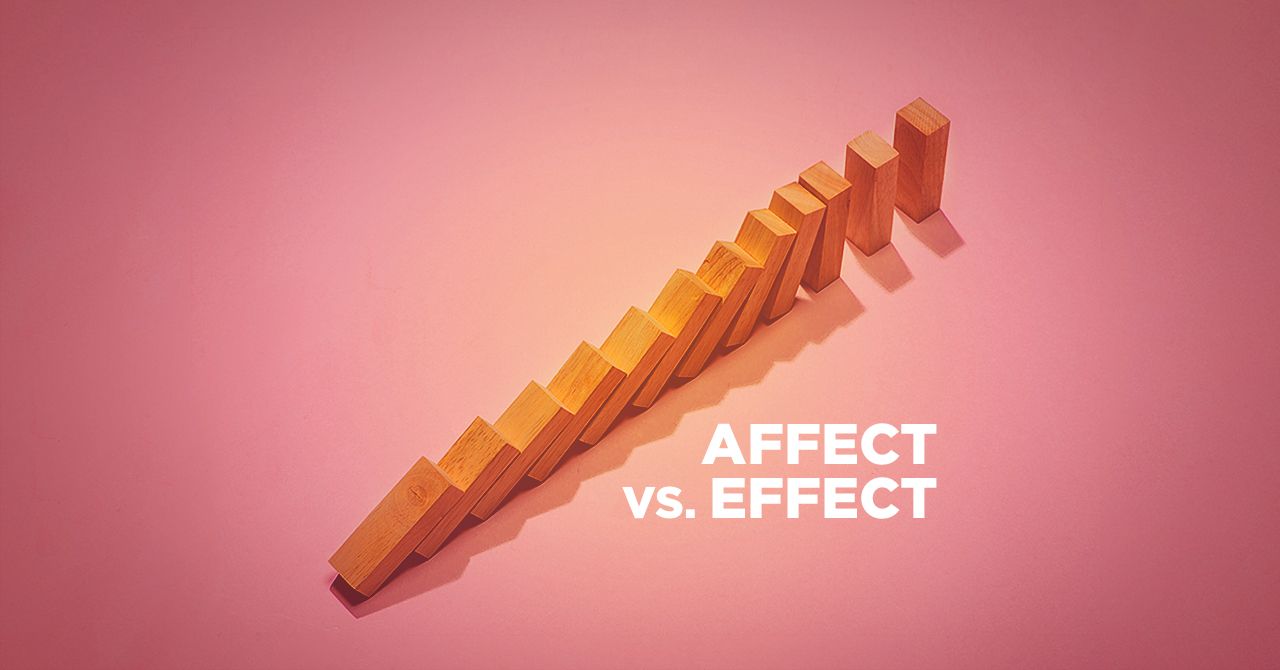
Affect vs. Effect: Difference and Proper Usage
Understanding the difference between affect and effect will help your English sound more professional, so let’s help you keep them straight.

Get a FREE guide!
Want to sound like a native English speaker?
Get our free PDF with top tips that work.

Check your email!
Knowing when to use affect vs. effect or affected vs. effected can be tricky because they sound almost identical. But they are different parts of speech with different meanings, so it’s important to choose the right one in every situation.
Understanding the difference between affect and effect will help your English sound more professional, so let’s help you keep them straight.
Affect vs. effect—How to make a difference
Effect or affect? How to choose effect or affect? First of all, “effect” is a noun, and “affect” is a verb. This means that when you need to describe an action, you need the verb affect, and when you need to describe the result of the action, you need the noun effect.
Example:
Humidity affects the human body.
Common effects include dehydration and irritability.
Of course, there are some exceptions. If you keep this in mind, it will help you use the right word most of the time.
Affect — Definition and usage
“Affect” is a verb that describes an action, to cause a change in something or someone, or to influence someone or something.
Examples:
I let my emotions affect my decision.
The medicine I took yesterday affected my mood.
Effect — Definition and usage
Effect is a noun that describes a change that happens as a result of an action or a specific mood or feeling caused by something or someone.
Examples:
Following a well-balanced diet will have a positive effect on your health.
What are the effects of global warming?
The easiest way to remember the difference between “affect” and “effect”
An easy way to pick the right word is to remember the first letter of both words. Remember that “a” in “affect” stands for action, and verbs describe actions.
When it comes to “effect,” remember the popular phrase “cause and effect” where the last letter of “cause” – “e,” leads to the first letter of “effect,” just like causes always lead to effects.
















